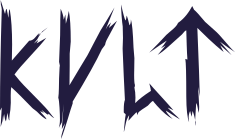Attempts to present a uniform, asychronous client interface for HTTP across JVM / Node / browsers.
Latest documentation / examples
- Supports Clojure/JVM, Clojurescript/Node and Clojurescript/Browser
- Individual deferred values are exposed via promises (kvlt.core), or asynchronous channels (kvlt.chan)
core.async-based support for Websockets and Server-sent Events- Raw responses available as Javascript typed arrays (on Node, and in browsers with XHR Level 2 support)
- Ring-like API
- Clojure use requires JDK8
- Automated/CI testing is currently limited to JVM, Node and recent Chrome & Firefox builds
- No support for streamed requests/responses. Open to suggestions about how this might be handled across platforms
- Young project, etc. - please file issues
kvlt.core/request!
returns a promesa promise, which
can be manipulated using promise-specific (e.g. promesa/then)
operations, or treated as a monad using the primitives from
cats. Below, we're working with
something like:
(ns kvlt.examples
(:require [kvlt.core :as kvlt]
[promesa.core :as p]))The default :method is :get:
(p/alet [{:keys [status]} (p/await (kvlt/request! {:url url}))]
(is (= status 200)))(p/then
(kvlt/request! {:url url})
(fn [{:keys [status]}]
(is (= status 200))))The kvlt.chan namespace
parallels the promise-driven kvlt.core, using asynchronous channels
to communicate deferred values.
(go
(let [{:keys [status]} (<! (kvlt.chan/request! {:url url}))]
(is (= status 200))))In addition to Ring-style :form-params/:type, metadata may be
applied to :body, indicating the desired content-type and body
serialization:
(p/alet [{:keys [body]}
(p/await
(kvlt/request!
{:url url
:method :post
:body ^:kvlt.body/edn {:hello "world"}
:as :auto}))]
(is (= (body :hello) "world"))):as :auto causes the :body key in the response to be processed in
accord with the response's content-type. :as :edn, in this case,
would have the same effect.
(p/catch
(kvlt/request! {:url (str url "/404")})
(fn [e]
(is (= :not-found ((ex-data e) :type)))))All requests resulting in exceptional response codes, or more
fundamental (e.g. transport) errors will cause the returned promise's
error branch to be followed with an
ExceptionInfo
instance - i.e. an Exception/Error with an associated response map
retrievable via ex-data.
{:headers {:content-type "text/plain" ...}
:type :not-found
:reason :not-found
:status 404
...}More request/response examples
(def events (kvlt.core/event-source! url))events is a core.async channel (rather, something a lot like a
core.async channel, which'll terminate the SSE connection when
async/close!'d).
Assuming no event types or identifiers are supplied by the server, a
value on events looks something like:
{:type :message
:data "String\nfrom\nthe server"}kvlt.core/websocket!
takes a URL, and returns a promise which'll resolve to a core.async
channel:
(p/alet [ws (p/await (kvlt/websocket! "http://localhost:5000/ws" {:format :edn}))]
(go
(>! ws {:climate :good, :bribery :tolerated})
(let [instructions (<! ws)]
(is (instructions :proceed?)))))Closing the ws channel will terminate the websocket connection.
kvlt is free and unencumbered public domain software. For more information, see http://unlicense.org/ or the accompanying UNLICENSE file.
